Todos los talleres deberían invertir en soportes para herramientas
-
Invertir en portaherramientas de alta calidad garantiza la máxima precisión en las operaciones de mecanizado, lo que se traduce en un mejor ajuste, mayor rigidez y menor vibración para obtener acabados superiores y especificaciones estrictas.
-
Elegir los portaherramientas adecuados, adaptados a las necesidades específicas de cada proyecto, mejora el rendimiento y la consistencia, reduce la tensión en los componentes, aumenta la vida útil de las herramientas y minimiza el tiempo de inactividad y las repeticiones del trabajo.
-
Si bien los portaherramientas de alta calidad pueden tener costos iniciales más elevados, ofrecen ahorros a largo plazo al prolongar la vida útil de las herramientas, reducir las necesidades de reemplazo e incorporar tecnologías avanzadas como sensores integrados para una mayor durabilidad y eficiencia operativa.
Imagina que un taller mecánico está reemplazando algunos equipos cuando recibe un pedido para una serie de cuerpos de válvulas. El pedido es grande y el único equipo que falta por actualizar es un conjunto de portaherramientas. El dueño del taller, apurado por comenzar, no dedica mucho tiempo ni reflexión a la selección de sus portaherramientas. Simplemente elige una marca que ha escuchado y se pone a trabajar.
Al principio, la producción va bien. Sin embargo, la desviación radial se acumula más rápido de lo esperado, arruinando los acabados y causando retrabajos. Varias piezas de trabajo deben desecharse por completo. Los productos finales aún cumplen con las especificaciones, pero el trabajo tomó más tiempo del planificado originalmente. El dueño del taller no está seguro de que vuelva a recibir pedidos de ese cliente.
Todo esto podría haberse evitado si el taller hubiera puesto un poco más de pensamiento en su inversión.
Conceptos erróneos comunes
Desafortunadamente para nuestro dueño de taller hipotético, a veces incluso los operadores experimentados hacen suposiciones que conducen a malas decisiones. Estos son algunos conceptos erróneos comunes:
El costo lo es todo
Un precio más alto o más bajo no siempre se correlaciona con una calidad superior o inferior. Pero los propietarios que buscan ahorrar dinero, o los que desean equipos “premium”, podrían mirar primero la etiqueta de precio y considerar otros factores después. En realidad, el costo es solo un factor entre muchos: no deberías asustarte por precios más altos, pero tampoco deberías tratar el precio como único indicador de calidad.
Una talla sirve para todo
Algunas empresas afirman ofrecer portaherramientas “universales” que pueden adaptarse a cualquier necesidad. Sin embargo, esta afirmación de “una talla para todos” suele ser engañosa, ya que estos portaherramientas generalmente solo son compatibles con una opción de sujeción. En cambio, BIG DAISHOWA ofrece una amplia gama de portaherramientas para satisfacer las necesidades específicas de cada proyecto: portapinzas, portaherramientas mecánicos, portaherramientas hidráulicos, portaherramientas de contracción térmica, de sujeción lateral y para fresas, por ejemplo.
Algunos parámetros no son tan importantes
Aunque algunos parámetros pueden parecer más relevantes al seleccionar tu portaherramientas, todos merecen igual consideración. Piensa en la precisión de las especificaciones del cono y la brida. Un operador podría prestarles menos atención porque está más enfocado en la composición del material. O tal vez prioriza la fuerza de sujeción por encima de todo. Sea cual sea la razón, algunos parámetros suelen pasarse por alto.
La fuerza de sujeción es universal
Hablando de fuerza de sujeción, es tan fundamental que algunos operadores pueden asumir que todos los portaherramientas alcanzan un nivel similar. Como resultado, podrían priorizar otros parámetros. Desafortunadamente, no todos los fabricantes cumplen con esa expectativa. Incluso si todos los portaherramientas anteriores ofrecían niveles similares de fuerza de sujeción, los propietarios deben considerarla cuidadosamente cada vez.
Estos son solo algunos de los muchos conceptos erróneos que llevan a las operaciones a tomar decisiones menos que ideales al elegir portaherramientas. Un propietario aún podría obtener un buen rendimiento con el portaherramientas incorrecto, pero con el tiempo, incluso los problemas menores se acumularán y desviarán toda la operación de su curso.
Beneficios clave
Si dedicas tiempo y esfuerzo a invertir en el portaherramientas ideal, tu taller verá beneficios significativos.
Máxima precisión y exactitud
Esto puede parecer obvio, pero recuerda el concepto erróneo sobre la universalidad. Que una herramienta y un portaherramientas sean compatibles no significa que ofrezcan el mejor ajuste posible. Cuanto mejor sea el ajuste, mayor será la rigidez, menor la vibración y mayor la precisión. Ya sea que trabajes con portaherramientas de doble contacto o tradicionales, el adecuado para el trabajo te dará los resultados más precisos.
Trabajo adaptado a tus necesidades
Piensa en los trabajos que tu operación realiza con frecuencia, así como en los campos a los que podrías expandirte en el futuro. Si tienes una visión clara de tus necesidades actuales y futuras al hacer tu inversión, obtendrás mejores resultados a largo plazo. Satisfacer necesidades específicas puede requerir comprar varios portaherramientas individuales, invertir en sistemas modulares o incluso ambos. Pero en cualquier caso, el resultado es el mismo: mayor calidad y consistencia.
Mayor vida útil de las herramientas
Menos vibración no solo significa mayor precisión, también implica menos esfuerzo en otros componentes. Esto prolonga la vida útil de las herramientas en general, protegiendo todo, desde las herramientas de corte hasta los propios husillos. También significa menos tiempo de inactividad no planificado o retrabajos. Obtendrás el máximo rendimiento de cada herramienta y tendrás una mejor idea de cuándo necesitará reemplazo.
Ahorros a largo plazo
Los precios altos no siempre significan alta calidad, pero a veces, un portaherramientas más caro puede ser el que mejor se adapte a tus necesidades. En estos casos, no te dejes llevar por el impacto del precio. Puede que pagues más al principio, pero al final obtendrás más uso de cada herramienta y mejores resultados en cada pieza. Eso significa menos dinero gastado y más ganancias a lo largo de la vida útil del portaherramientas.
Nuevos beneficios de nuevas tecnologías
Puede que ya estés satisfecho con los portaherramientas que tienes, pero no dejes que eso te impida considerar una actualización. Los portaherramientas han avanzado enormemente en los últimos años. Los modelos más nuevos ofrecen características que los modelos antiguos no tienen. Por ejemplo, algunos portaherramientas tienen sensores integrados que pueden detectar problemas con las piezas o herramientas en cuanto ocurren. Otros pueden usar tecnologías de recubrimiento avanzadas para mejorar la durabilidad. Hay un mundo de nuevas características ahí fuera, y los talleres pueden beneficiarse enormemente al adoptarlas.
Volvamos a esa serie de cuerpos de válvulas. Esta vez, el dueño del taller reflexiona realmente sobre la selección de portaherramientas. Termina gastando un poco más de dinero y comprando algunos más de los que había planeado originalmente. Pero el trabajo se realiza sin contratiempos, incluso más rápido de lo previsto. El cliente queda satisfecho y el taller recibe más trabajo, una situación beneficiosa para ambos, todo porque el propietario entendió la importancia de invertir en los portaherramientas adecuados.
¿Te pareció interesante o útil? Haznos saber tu opinión agregando tus comentarios o preguntas a continuación.





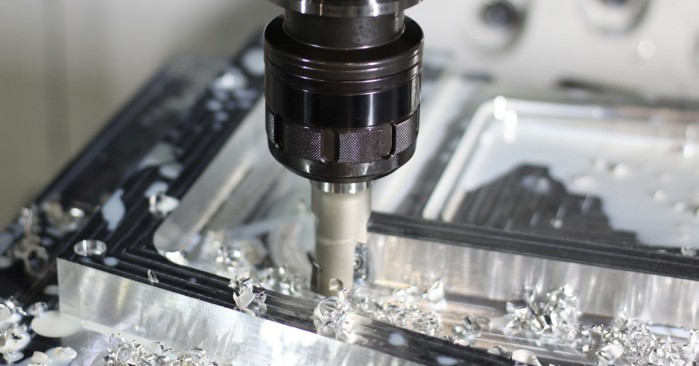
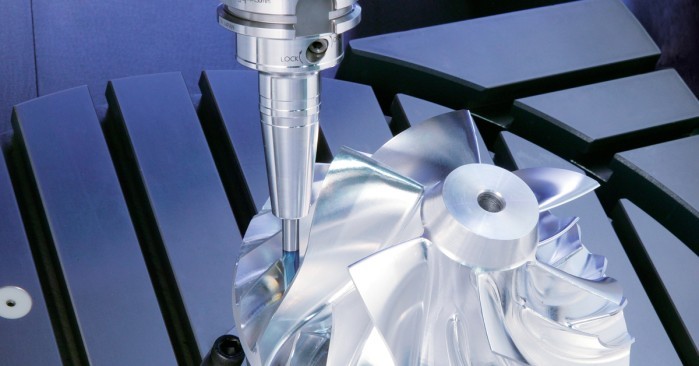
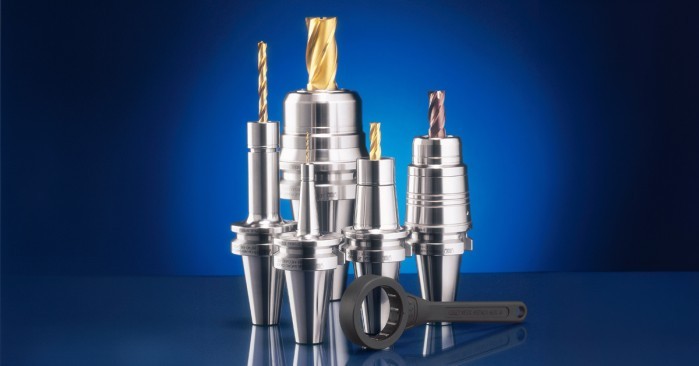

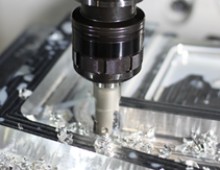
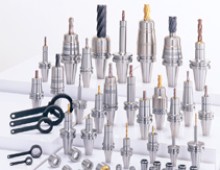


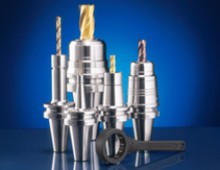
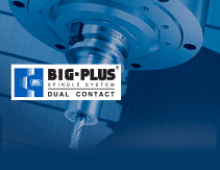
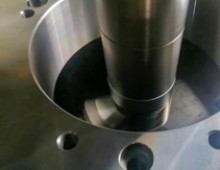
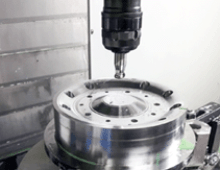
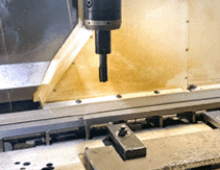
Añadir nuevo comentario